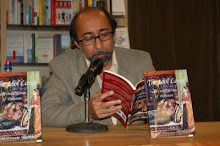Excerpt from Anuradha Kumar’s collection
A Sense of Time and Other Stories (coming soon)
The Entomologist at the Trial
The last time I went to visit my uncle, he was still chasing his dreams of making it big in the High Court. A lawyer in the small district court of Old Town, he dreamt big. He could enact long courtroom scenes, such as the one in the Hindi film, Waqt, or Portia’s defense of Antonio, and one day soon, he always promised, he would assist the great lawyer, Ranganath Singh, in the High Court of New Town, the state’s biggest city. Once, after a particularly affecting portrayal of Atticus Finch, he told me, “That great lawyer, Singh, just has to notice me, then there is no way he cannot take me on.” Uncle had never sounded more sincere.
To draw the attention of the great lawyer whose understudy Uncle wished to become, he took on the cases all his peers refused to take on. Sometimes Uncle’s decisions, driven by idealism, flopped miserably. For example, when he took on the case of the temple dancer who had been cheated out of her savings by the priest, everyone said he was mad and sure to lose. Uncle did lose and was forever barred from the temple.
On another occasion, Uncle came to the rescue of the local rat catcher. I had seen the man a few times. He walked slowly from street to street, silent unlike the other vendors, holding out a shiny colorful placard in front of him. It described with very graphic images, every possible way of killing a rat. You could strangle, poison and drown them or trap them in all kinds of contraptions he had especially designed. Long ago, the rat catcher had a voice, but he lost it one day.
As the story went, this had happened because the rat catcher had shouted himself hoarse in court when a case was slapped against him by an irate client who insisted that the man never caught a live rat. Rather it was a cat that did so, and hence it was the cat who deserved the heavy fees the catcher always charged. My uncle had tried to defend him, but the rat catcher never gave him a chance to talk. The court fined the rat catcher and Uncle was reprimanded. He considered it one of his most humiliating moments. Something he hoped Ranganath Singh would never get wind of. I think it was Uncle who spread the story that it was not any incompetence on his part that forced the catcher to take up his own defense, but rather the latter lost his voice when the Listerine he used every night to gargle and clear his throat turned out to be contaminated. If the rats had chosen this devious way to get back at the catcher, Uncle never let on.
Last year, I spent another summer with Uncle. It was cramped in his two-room bachelor set-up because I had to share space with someone whom uncle introduced as the entomologist. A man who studies insects, my new acquaintance told me seconds after uncle had introduced us. My indignant response, entirely spontaneous, was to tell him rather coldly that I knew that. I study botany in school, I told him. Maybe it was my imagination or hindsight now, but I think I saw something like panic cross his face. I do remember with certainty, however, the manner in which the entomologist grasped my hand, clapped me on the back, and called me a comrade. It seemed overdone. “Don’t worry,” he told me, “I am no Brundlefly, and just for the record, I never liked The Fly. Insects really aren’t so diabolical, most of them, at least.” He winked at me, and that gesture contorted his face in a peculiar way. As if he wanted to be jovial, but was in fact nervous.
Later that night, after the entomologist turned in, Uncle and I sat on the porch outside, watching the stars appear one after another in a rapidly darkening sky. We spoke in whispers, so as not to disturb the neighbors. The only sound in that still night was the unending buzz of the crickets and the creak of cane as we shifted in our chairs. “He’s here for a case.” Uncle spoke in the softest whisper and my chair made an agonized creak as I bent forward to listen.

